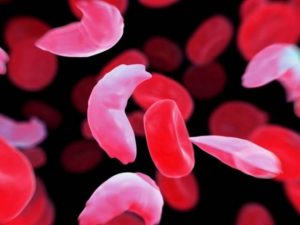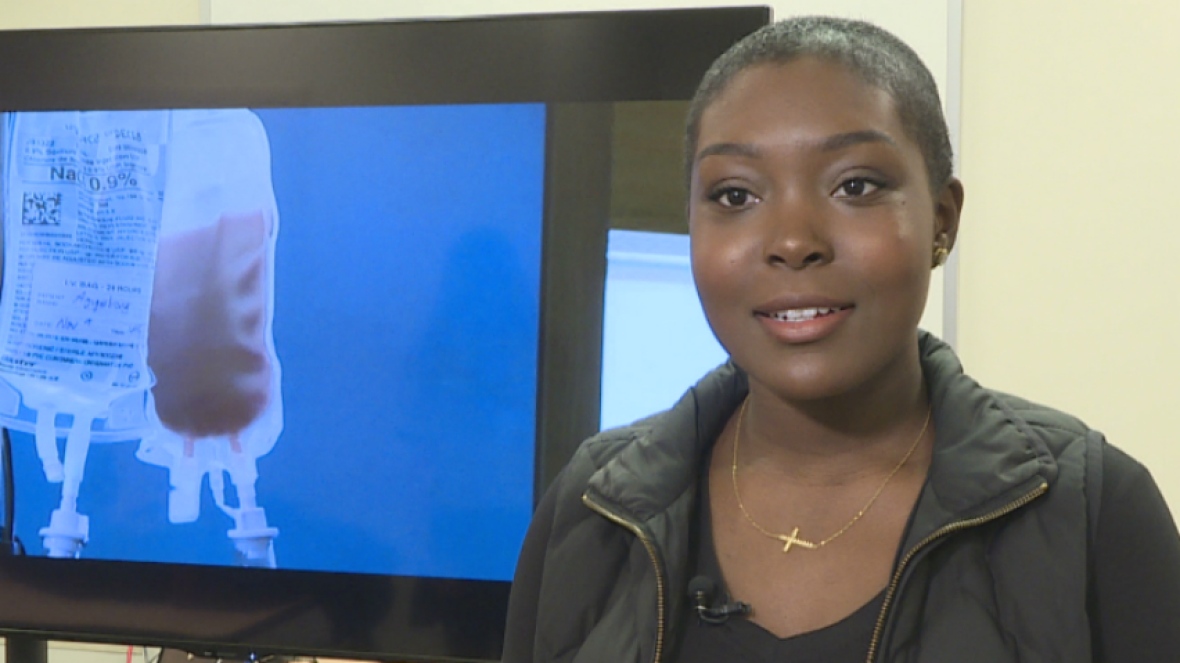Possible Complications in children

Growth, development and nutrition
As with any long-term illness, a child with SCD may grow more slowly than usual, or be undernourished if the illness affects their appetite. Your child’s growth, development and nutrition should be checked regularly, and nutritional supplements may be given if needed.
Some children with SCD take longer than usual to gain control of their bladder at night, so may bed wet for sometime. For teenagers, puberty may start about 2-3 years later than average.
The growth of bones can also be affected. For example, there may be changes in the hip or shoulder joints due to blocked blood vessels in that part of the bone. If a joint is severely affected, surgery may be needed.
Spleen problems
The spleen is an organ located in the tummy (abdomen), in the top left-hand side. Its function is to help the immune system. Sickle cells can block blood vessels in the spleen. This can make the spleen swell up suddenly with blood – in effect, it is like losing blood into the spleen. This is one cause of sudden and severe anaemia, when your child becomes suddenly ill. The medical term is splenic sequestration. It needs urgent treatment with a blood transfusion.
If this problem happens more than once then one option is surgery to remove the spleen. However, by adulthood the problem normally resolves because the spleen becomes hard (fibrosed) and cannot swell.
Parvovirus infection
Parvovirus is a common infection in childhood. Normally it causes a mild illness with high temperature (fever), flushed cheeks and a rash. With SCD, the virus can upset the bone marrow, which then stops making blood for a while. This causes a severe anaemia and needs treating with blood transfusions until the bone marrow recovers.
Stroke or brain injury
This is a serious complication and affects about 1 in 10 children or teenagers with SCD. If sickle cells block blood vessels in the brain, this may cause a stroke. There may be symptoms of stroke such as weakness of the face or limb, or speech difficulty. For some children, there may be no obvious symptoms. However, many tiny strokes may cause a subtle brain injury and make learning more difficult.
Strokes are treated with blood transfusion, which improves blood flow to the brain. Also, research has found that regular transfusions help to prevent strokes.
An ultrasound test called a trans-cranial doppler can be used to look at the blood flow to the brain. This helps doctors to decide whether your child needs blood transfusions for prevention. Children aged 3 years should be offered these scans.
Complications of blood transfusions
Transfusions can sometimes cause blood reactions. These are less likely if the blood is carefully matched to your blood type. Infections such as hepatitis B and C can be transmitted by transfusion. This is not frequent in the developed countries where donor blood is tested for infections. Hepatitis B vaccination is also recommended.
Repeated blood transfusions can overload the body tissues with iron. You may need tests to measure the iron level in the body. If iron levels get high, you may need treatment called chelation, which helps the body get rid of excess iron.
Possible complications in older teenagers and adults
Damage to various organs can develop gradually during teenage and adult years, due to repeated, small blockages of tiny blood vessels. The amount of complications varies from person to person.
Lungs, heart and kidneys
Any of these organs may suffer some damage. Therefore, you will normally be offered regular checks on your heart, lungs and kidney function. Various treatments can help.
Eyes
Regular eye checks are important. SCD may cause changes to blood vessels in the back of the eye (retina); this is called retinopathy. For retinopathy, laser treatment is given to prevent further damage.
Also, sickle cells may cause sudden blockage of a blood vessel in the eye. If this happens, you will have a sudden reduction in your vision. This needs immediate treatment. So, always see a doctor quickly if your vision reduces suddenly in any way.
Gallstones
Stones in the gallbladder are more common in people with SCD, and can cause bouts of pain in the upper right side of the abdomen. They may need treatment which is usually an operation to remove the gallbladder.
Leg ulcers
Leg ulcers can occur with SCD but are not common. Treatment is with dressings, and zinc supplements may help.
Priapism (unwanted erections)
Some teenage boys and men with SCD may get unwanted erections of the penis, which may be painful. The medical name for this is priapism. This can be quite brief but if an erection does not subside within one hour then urgent treatment is needed. There are various treatments to relieve or prevent unwanted erections.
Complications of blood transfusions
These are explained above for children, and also apply to adults.
Sickle cell disease (SCD) is a serious condition which may shorten life. Without treatment, people with SCD may die in childhood, from problems such as infection. Good treatment makes a great difference. Improvements in treatment mean that life expectancy has increased.
Even with modern treatment, SCD can still cause serious or life-threatening problems. Dangerous problems are severe infection, acute chest syndrome and sudden severe anaemia. Awareness of symptoms and early treatment are important.
There are lost of individual variation in the severity and outlook (prognosis) for SCD. Some people get very few problems from their SCD; others have more symptoms or more complications.
The treatment of sickle cell anaemia is a developing area of medicine.
The specialist who knows your case can give more accurate information about the outlook for your particular situation.




Recent Comments